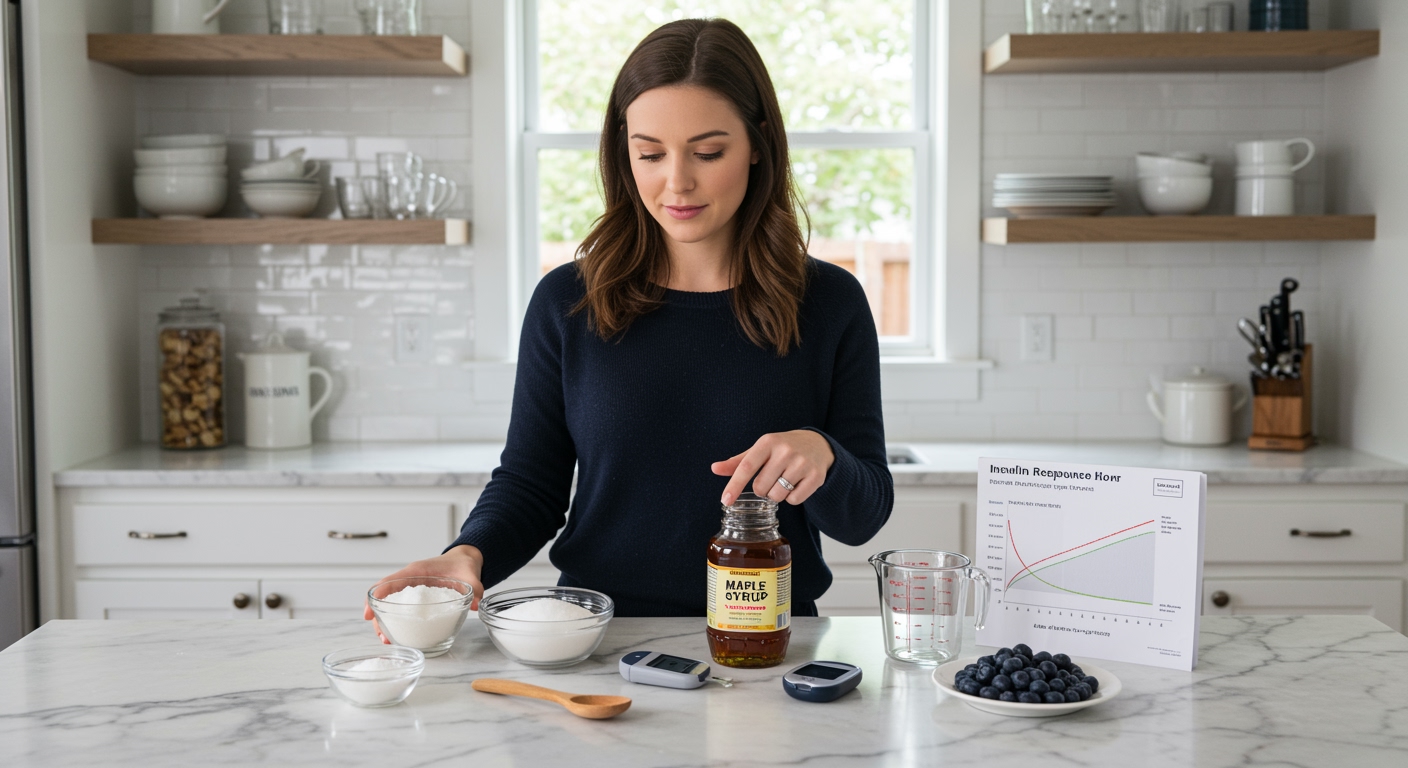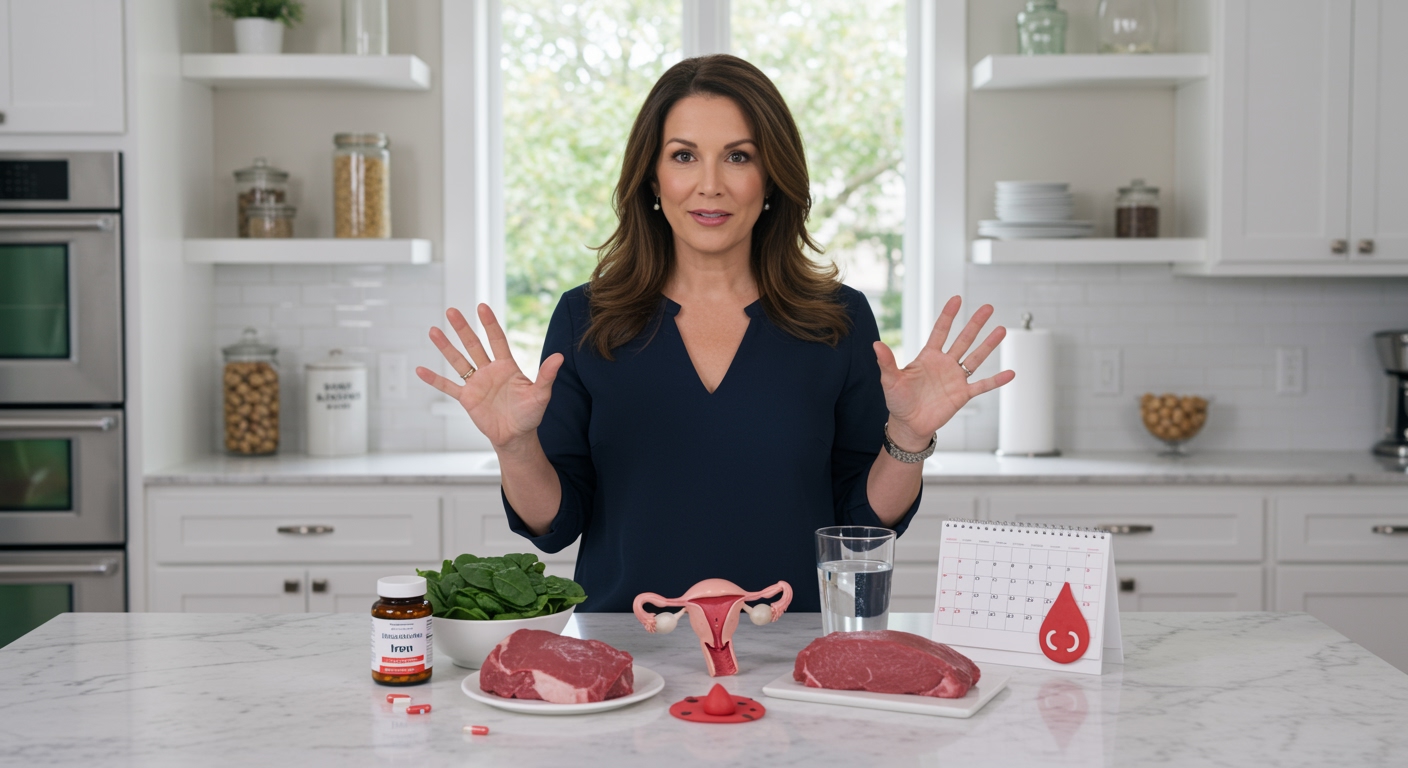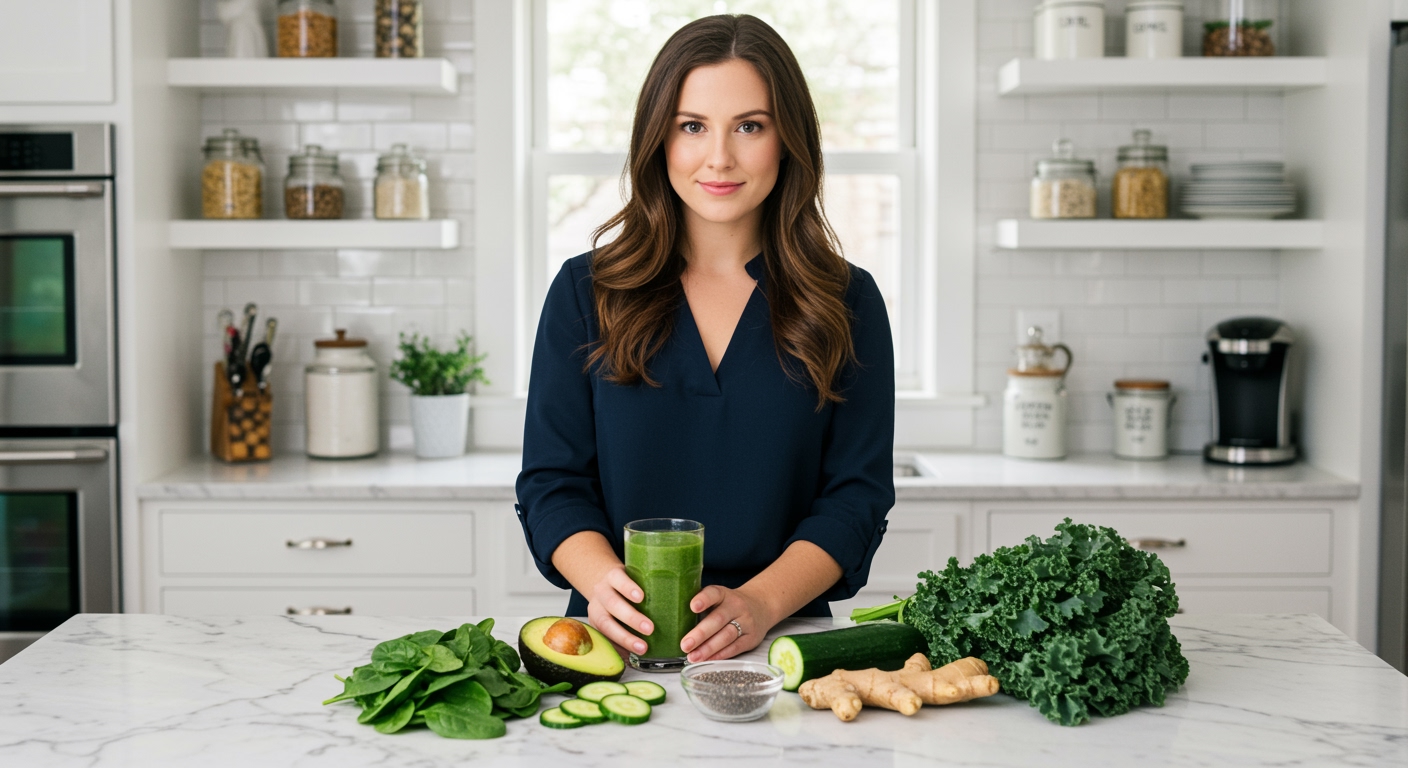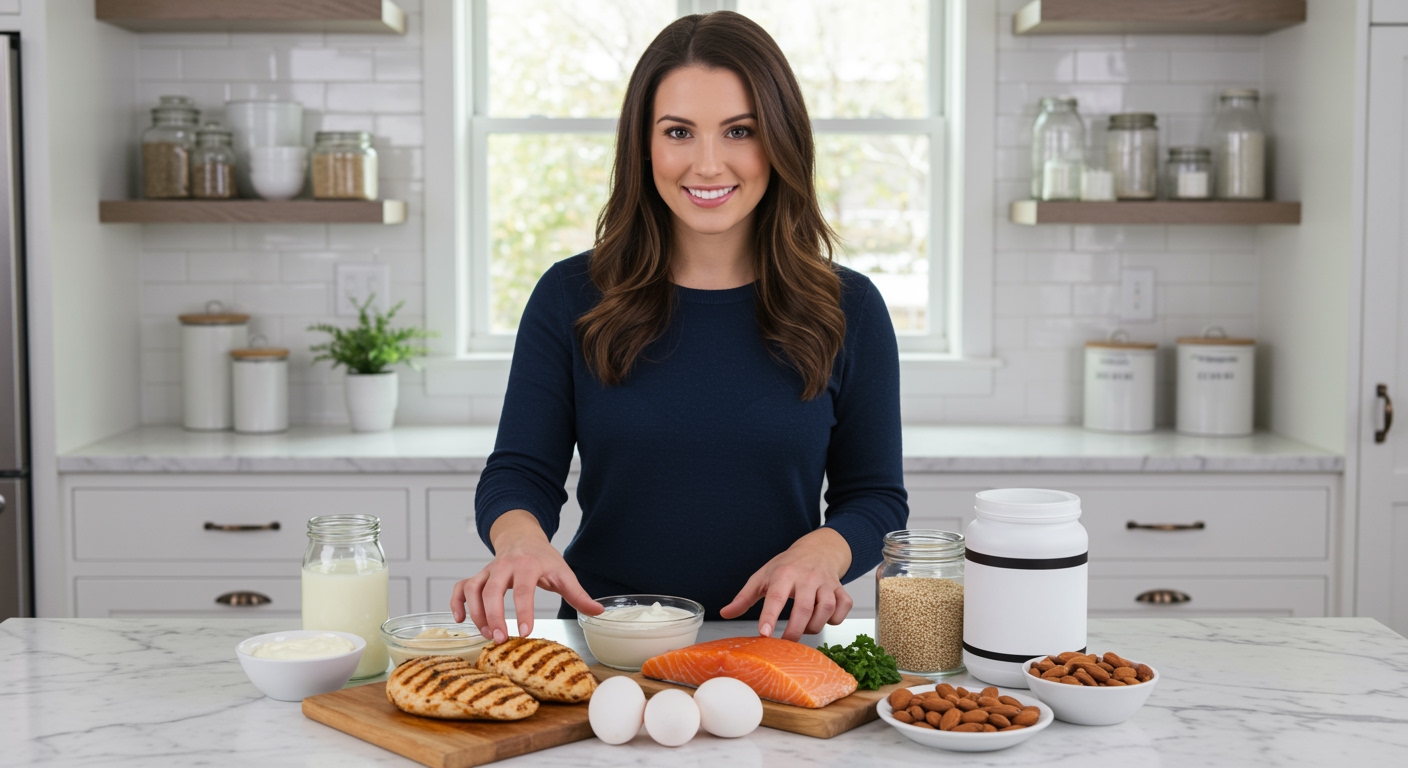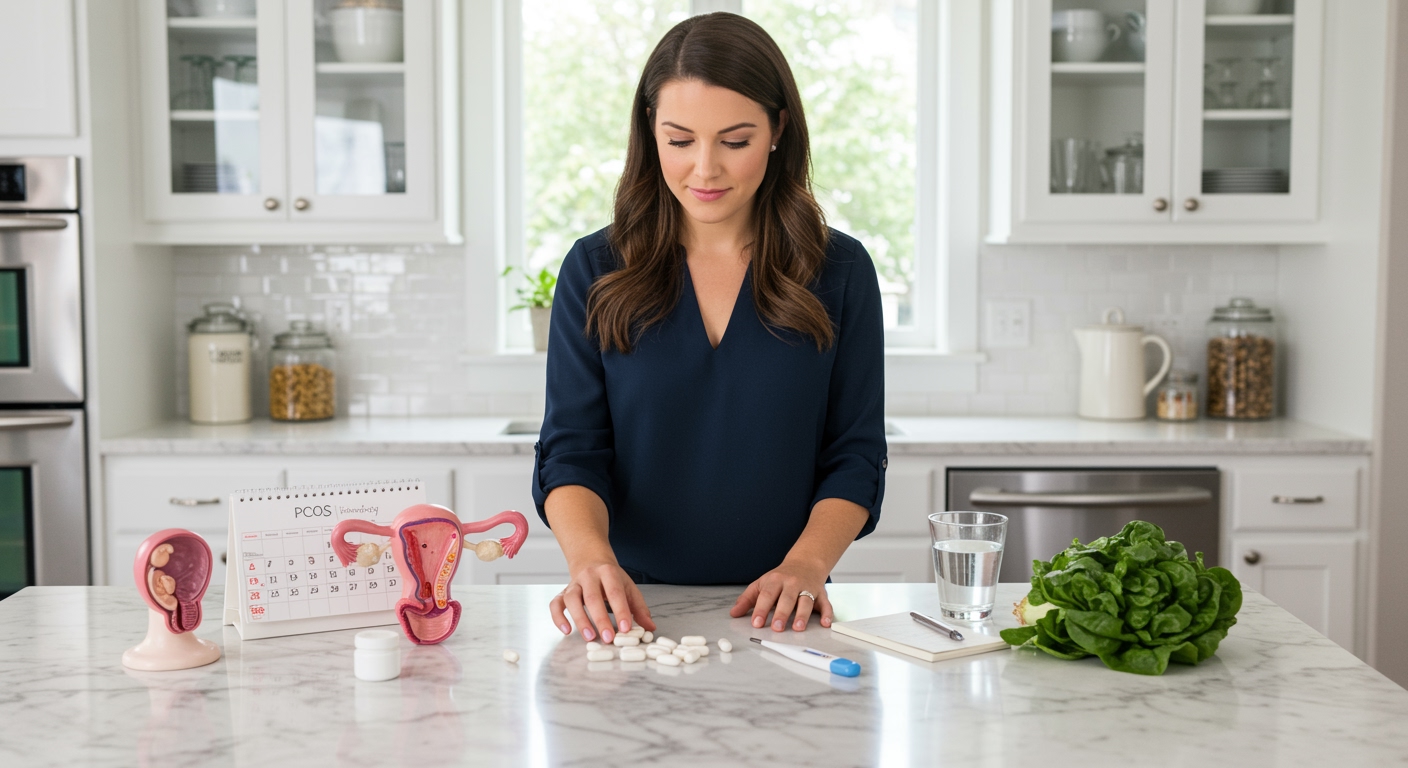✪ Key Takeaway: Maple syrup is not better than sugar for PCOS because both spike blood sugar and worsen insulin resistance equally.
Introduction
You walk down the grocery aisle and see maple syrup marketed as a natural, healthier alternative to regular sugar.
Many women with PCOS wonder if switching to maple syrup will help manage their symptoms better than using regular table sugar.
Hi, I’m Abdur, your nutrition coach and today I’m going to explain whether maple syrup is actually better than sugar for PCOS management.
What Makes Maple Syrup Different From Sugar?
Maple syrup comes from the sap of maple trees and contains about 67% sucrose, which is the same type of sugar found in table sugar.
Regular table sugar is 100% sucrose that has been refined from sugar cane or sugar beets.
Both sweeteners break down into glucose and fructose in your digestive system through the same metabolic pathways.
Maple syrup does contain small amounts of minerals like manganese and zinc, but these amounts are too tiny to provide meaningful nutritional benefits.
The glycemic index of maple syrup ranges from 63-68, while table sugar sits at 65, making their blood sugar impact nearly identical.
Your pancreas responds to both sweeteners by releasing the same amount of insulin to process the incoming glucose.
✪ Fact: One tablespoon of maple syrup contains 52 calories compared to 49 calories in table sugar.
How Do These Sweeteners Affect PCOS Symptoms?
Insulin resistance is the core problem in PCOS, affecting up to 85% of women with this condition.
Both maple syrup and sugar cause rapid spikes in blood glucose levels, forcing your already overworked pancreas to produce more insulin.
This insulin surge triggers your ovaries to produce excess androgens like testosterone, worsening symptoms like acne, hair growth, and irregular periods.
High insulin levels also promote fat storage around your midsection, making weight loss extremely difficult.
The fructose component in both sweeteners gets processed directly by your liver, potentially contributing to fatty liver disease.
Neither sweetener provides any protective benefits against the inflammation that drives PCOS symptoms.
✪ Pro Tip: Monitor your blood sugar 2 hours after eating any sweetener to see your personal response.
What Does The Research Actually Show?
Studies comparing different types of added sugars show no significant difference in their effects on insulin sensitivity.
Research published in nutrition journals consistently demonstrates that the total amount of sugar consumed matters more than the source.
Women with PCOS who reduced their overall sugar intake saw improvements in insulin levels regardless of which type they eliminated.
Clinical trials focusing on PCOS management emphasize limiting all forms of concentrated sweeteners rather than switching between them.
The small mineral content in maple syrup has never been shown to offset its negative metabolic effects in PCOS patients.
Metabolic studies reveal that both sweeteners trigger similar hormonal responses that can worsen PCOS symptoms.
✪ Note: Even natural sugars from fruit can be problematic when consumed in large quantities with PCOS.
What Should You Use Instead?
Stevia and monk fruit are zero-calorie sweeteners that do not affect blood sugar or insulin levels.
These natural alternatives allow you to satisfy sweet cravings without triggering the hormonal cascade that worsens PCOS.
Small amounts of fresh fruit provide natural sweetness along with fiber that slows sugar absorption.
Cinnamon and vanilla extract can add sweetness perception without any actual sugar content.
Gradually reducing your overall preference for sweet tastes helps reset your palate and reduces cravings.
Focus on getting sweetness from whole foods like berries rather than any concentrated sweetening agents.
✪ Pro Tip: Start by cutting your current sweetener use in half and gradually reduce further over several weeks.
The Bottom Line
Maple syrup is not better than sugar for PCOS because both sweeteners have nearly identical effects on blood sugar and insulin levels.
The best sweetener for PCOS is the one you do not use at all – your body will thank you for choosing alternatives that support rather than sabotage your hormonal balance.
I would love to hear about your experiences with different sweeteners and PCOS management in the comments below.
References
At NutritionCrown, we use quality and credible sources to ensure our content is accurate and trustworthy. Below are the sources referenced in creating this article:
- PCOS Meal Planner: Maple Syrup vs Coconut Sugar PCOS Sweetener Comparison
- Casa de Sante: Best Sugar Alternative for PCOS
- PCOS Diva: Sweeteners for PCOS
- PCOS Weight Loss: How Much Sugar is Okay with PCOS Natural Sugars Artificial Sweeteners Explained
